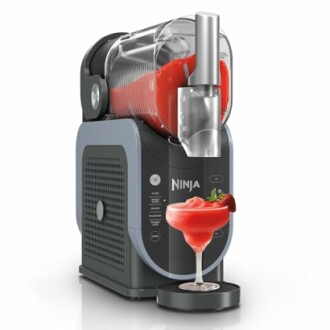
The Future of Home Automation: Trends to Watch in 2025
Key Takeaways
- Home automation will see significant advancements in AI and machine learning.
- Increased focus on energy efficiency and sustainability in smart devices.
- More seamless integration of smart home systems across various platforms.
- Enhanced security features powered by advanced technologies.
- Rising popularity of voice-activated and app-based control systems.
As we step into 2025, the landscape of home automation is poised for exciting advancements. Homeowners are increasingly seeking technological solutions that promote convenience, energy efficiency, and security. The evolution of smart technologies is not merely about sophisticated gadgets; it's about creating connected ecosystems that enhance our lifestyles. In this article, we'll explore the key trends in home automation expected to shape the industry in the coming year.
1. Artificial Intelligence and Machine Learning
Artificial intelligence (AI) is set to revolutionize home automation by making devices smarter and more responsive. Here’s how:
- AI-powered systems will learn your routines and adjust settings automatically.
- Machine learning will enable devices to predict the homeowner's needs, enhancing comfort and convenience.
- Voice assistants will become more intuitive, understanding context and nuances in commands.
AI in Action
| Feature | Benefit |
|---|---|
| Adaptive Lighting | Automatically adjusts brightness based on natural light and time of day. |
| Smart Thermostats | Learning user habits for optimal heating and cooling schedules. |
2. Energy Efficiency and Sustainability
With a growing emphasis on sustainability, home automation technology is focusing on energy efficiency:
- Smart devices will offer extensive energy monitoring features, allowing homeowners to track usage.
- Integration with renewable energy systems, such as solar power, will become commonplace.
- Home automation systems will optimize energy use during peak and off-peak times.
Eco-Friendly Solutions
Some examples of sustainable home automation technologies include:
- Solar panel integration with home energy management systems.
- Smart irrigation systems that only water plants when necessary.
- Energy-efficient appliances that adapt their usage based on home occupancy.
3. Seamless Integration of Smart Devices
Another major trend is the seamless integration of various smart devices:
- Interoperability between devices from different manufacturers will improve.
- Unified control systems will allow users to manage all devices through a single platform.
Integration Platforms
| Platform | Features |
|---|---|
| Google Home | Supports a range of devices from various brands, easy voice commands. |
| Amazon Alexa | Highly customizable routines and extensive device support. |
4. Enhanced Security Features
With security being a top concern for homeowners, automation systems are integrating advanced security features:
- Facial recognition technology for enhanced access control.
- Smart locks that can be managed remotely.
- Sensors that notify homeowners of unusual activities, such as break-ins.
Security in Home Automation
Implementing these features can significantly increase the security of your home:
- Integration of motion detectors with lighting systems for a deterrent effect.
- Automated notifications to homeowners' smartphones in case of security breaches.
5. Voice-Activated Control Systems
Voice-assistants are becoming an essential part of home automation, allowing hands-free control:
- Improved voice recognition technology to accurately interpret commands.
- Integration into everyday devices like lighting, heating, and smart appliances.
For more information, check out our article on Luxury Electronics to explore advanced audio and visual deals that integrate seamlessly into your smart home ecosystem.
Conclusion
The future of home automation is bright, with innovations that promise to enhance our lives in various aspects, from convenience to energy conservation. As technology develops, the integration of intelligent systems will allow for an ever-more connected and efficient home experience. Stay ahead of the curve by investing in these trends and turn your home into a smart hub.
Ninja FS301 Professional Maker with RapidChill Technology
This versatile machine allows you to create smooth, flavorful frozen drinks with ease, offering a premium experience for your home.
Learn MoreTips for Implementing Home Automation
- Evaluate your needs and identify areas for automation.
- Choose devices compatible with your existing systems.
- Plan your budget effectively and consider long-term savings.
- Regularly update and maintain your systems for optimal performance.
Pros
- Increased convenience and comfort in daily life.
- Potential for significant energy savings.
- Enhanced security features provide peace of mind.
- Improved control and automation of home systems.
Cons
- Initial costs of smart systems can be high.
- Compatibility issues between different brands and devices.
- Reliance on internet connectivity for full functionality.


